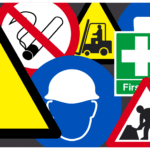Your recourse to medical aid scheme that refuses to pay for procedures covered by the medical aid
As a medical aid member you rely on your medical aid to come to your rescue when you have medical problems, but what happens when your medical aid refuses to pay for essential medical care. Can they refuse to pay for your medical care, if so, can they do so without a valid reason and what recourse do you have?
Is my medical scheme obliged by law to provide cover for certain medical conditions?
Yes, these are known as Prescribed Minimum Benefits (PMBs). They were introduced into the Medical Schemes Act to ensure that beneficiaries of medical schemes would not run out of benefits for certain conditions and find themselves forced to go to State hospitals for treatment. These PMBs cover a wide range of ±270 conditions, such as meningitis, various cancers, menopausal management, cardiac treatment etc, including medical emergencies. However, take note that certain limitations could apply, such as the use of a designated service provider and specified treatment standards.
When can a medical aid rightfully refuse to pay for medical procedures?
There are two situations where medical aids may refuse to cover treatment:
- The treatment may be non-essential meaning that it is either not a treatment that has conclusively been proven to be beneficial or it is a treatment that does not affect one’s health and lifespan.
- The medical expenses for the illness in question are a pre-existing condition and the stipulated waiting period is not over.
What recourse does a medical aid member have if the medical aid wrongfully refuse to provide cover?
Medical aid policies are not infallible and sometimes refusal to cover treatment may be seen as being unfair. When misunderstandings or differences of opinions arise, medical aid members can take further action.
The first option for recourse is to discuss the matter with your medical doctor. In certain cases, a medical aid may reconsider covering the treatment in question if a medical doctor can provide valid reasons as to why the treatment is necessary. You can collect a motivation letter from your doctor and send it through to the scheme. Their medical panel will then reconsider the decision.
Should you need to take it further then you can speak to the council of medical schemes, the authoritative body that regulates the operations of all medical aids in South Africa. This is not applicable to membership with hospital cash back plans and other medical insurance policies. In these cases, all questions and complaints have to be directed to the insurance ombudsman. People with legal insurance have the option of referring their matters to their insurance companies and letting them run with the matter until finalization.
Tips:
- Approach or have your representative approach the medical aid scheme before escalating your matter to the Council;
- If you have not received acknowledgement of your complaint within 3 days follow up;
- You are entitled to a response within 120 days.
Comments are closed.





